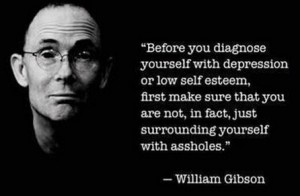Skip the work and save part and go straight to invest, you’ll be better off

Today Australian Industry Group chief executive Innes Willox is giving a speech in which he will assert that broadening the base of the GST and raising the rate must play a “central role in a [tax] reform package”.
Mr Willox, whilst saying tax reform should not be about “individual self-interest”, advocates the company tax rate be cut to “no more than 25 per cent” in the next couple of years, a reduction in the overall number of taxes, a reduction in personal income taxes that “reduce the incentive to work” and broadening the land tax base to reduce duties on residential properties.
If that’s not individual self-interest I don’t know what is. Mr Willox is paid a lot of money to represent the interests of big business and any pretence otherwise is laughable.
“Tax reform cannot simply be about taking the burden off the rich and placing it on others. But neither should it be about shifting all responsibilities for paying tax to the wealthy,” he will say.
The absolute chutzpah of these people, in the face of the mountain of evidence of tax avoidance by the wealthy and by companies, is astonishing.
Whilst it is true that the top 10% of Australian earners pay about 50% of the total income tax take, they also take home an astonishing 30% of all income with about a quarter of it coming from sources other than wages, salaries and pensions. The share taken by the top groups has been climbing since the early 80s.
As for reducing company tax, almost a third of Australia’s largest companies are paying less than 10¢ in the dollar in corporate tax as is. It is also worth noting that the corporate tax rate in the US is 35% as compared to our 30%.
Between 2004 and 2013 some $80 billion was lost through ‘legal’ corporate tax avoidance through the use of subsidiaries in tax havens and so-called “thin capitalisation”, where local entities are saddled with huge debts to reduce tax liabilities in Australia. An overseas arm of the company borrows money at very low interest rates and then lends it to the Australian arm of the company at exorbitant rates.
Almost 60 per cent of the ASX 200 declare subsidiaries in tax havens.
Data suggests that if all ASX 200 companies paid the full 30 per cent rate of company tax, the budget would gain around $8.4 billion more revenue a year.
Turnbull’s three word slogan, “work save invest”, is poor advice. As our taxation system stands, you are far better off to skip the work part, forget saving – just borrow the money, then invest it and sit back. Your ‘hard work’ and willingness to ‘take a risk’ will be rewarded. And if things go bad, declare yourself bankrupt so your creditors wear the loss and start fresh with some new risk funded by other people’s savings.
Like what we do at The AIMN?
You’ll like it even more knowing that your donation will help us to keep up the good fight.
Chuck in a few bucks and see just how far it goes!
Your contribution to help with the running costs of this site will be gratefully accepted.
You can donate through PayPal or credit card via the button below, or donate via bank transfer: BSB: 062500; A/c no: 10495969










